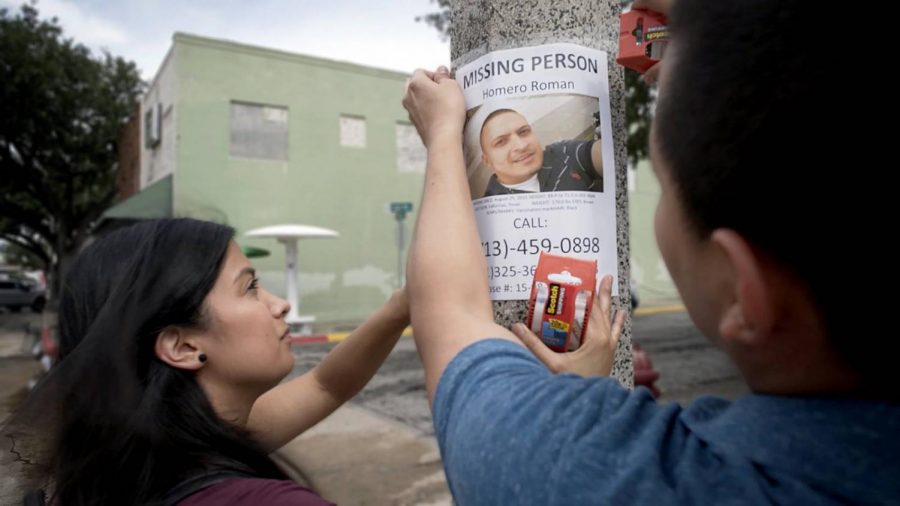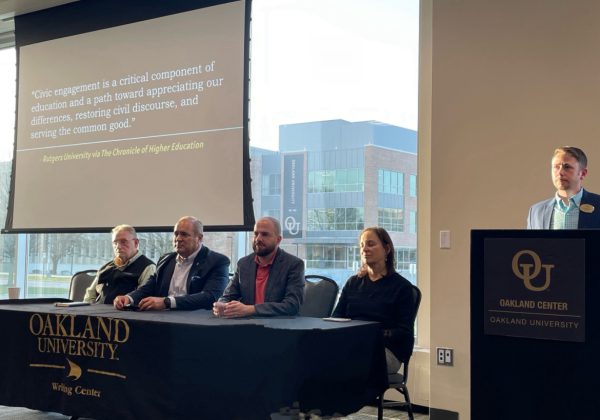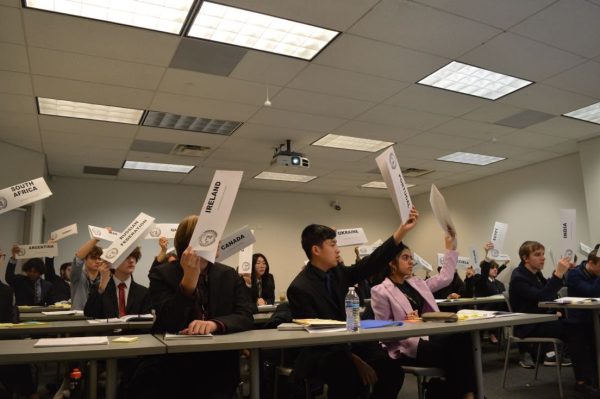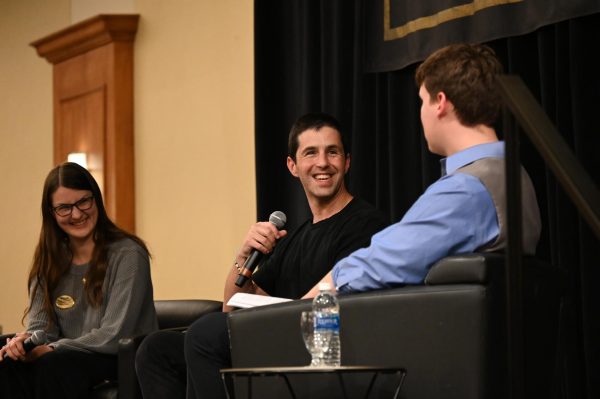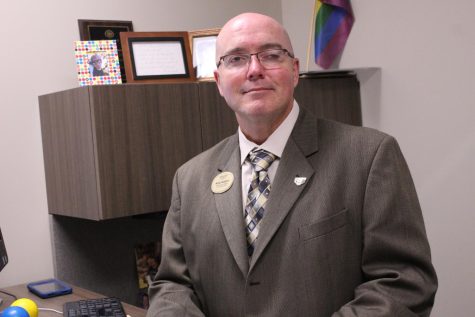2021 Immigration Film Festival kicks off with ‘Missing in Brooks County’
Photo courtesy of Missing in Brooks County
The 2021 Immigration Film Festival kicked off with a viewing of the documentary “Missing in Brooks County.” The film explores Brooks County, Texas where more migrants go missing after crossing the Mexico-United States border than anywhere else in the U.S.
On Sept. 16, Mexican Independence Day, Oakland University’s Department of Modern Languages and School of Nursing kicked off the annual Immigration Film Festival. Participants were able to attend the event in person at the Oakland Center or join virtually to watch the documentary “Missing in Brooks County,” followed by a Q & A with award-winning Co-Director and Producer Jeff Bemiss.
The Immigration Film Festival celebrates Hispanic Heritage Month, which is recognized nationally from Sept. 15 to Oct. 15.
“The Immigration Film Fest is an effort to promote understanding,” said Associate Professor and Film Fest host Adolfo Campoy-Cubillo, Ph.D.
“Missing in Brooks County” centers on rural Brooks County, Texas, where more migrants go missing after crossing the Mexico-United States border than anywhere else in the U.S. Due to the treacherous deserts of the area, many immigrants die of dehydration and exposure.
The documentary highlights the many perspectives surrounding the issue in the county, including the heartbreaking stories of two families searching for their missing loved ones, the frontman of the South Texas Human Rights Center Eddie Canales, the forensic anthropologists working to identify the remains found in the region, law enforcement agents and local vigilante ranchers.
“We wanted to treat the audience as intelligent,” Bemiss said. “We didn’t want to preach to them. We wanted to just show them what’s going on and let people make up their minds, but in order to do that, they have to see what’s going on, so we tried to make it a 360 degree view and let everybody have their moment to say their piece. Let the audience decide what kind of country they want to have and what kind of policy they want to have about their border.”
The story, though, was not intended to be a 360 degree view of the problems in Brooks County when it began. Bemiss and Co-Director and Producer Lisa Molomot met at Trinity College in Hartford Connecticut where they were both teaching. The two had heard a radio documentary about forensic scientist Lori Baker at Baylor University and wanted to make a short film about her.
Starting on the project, they reached out to Baker and she invited them to Falfurrias, Texas, where they had never been.
“We said, ‘Alright, can you show us the border?’” Bemiss said. “She [Baker] said, ‘Oh no, Brooks County isn’t even a border county — it’s 70 miles away. This is where the problem is.’ I think it was that moment where the film began to pivot in our minds. We realized that the story that really needed to be told was the story of what was happening in Brooks County.”
The 2021 Immigration Film Festival will continue with the viewing of Rodrigo Reyes’ “Purgatorio, viaje al corazón de la frontera” on Thursday, Sept. 23, a Round Table on Immigration with experts, activists and state representatives on Thursday, Sept. 30 and lastly, a discussion of Alex Rivera and Cristina Ibarra’s film “The Infiltrators” on Wednesday, Oct. 13.
Hispanic Heritage Month at OU will also be celebrated with the visit of Mexican-Jewish writer Jacobo Sefami on Thursday, Oct. 7 in Founders Ballroom A of the Oakland Center for a conversation about Jewish communities in Mexico, followed by a discussion titled Hispanics in the Automotive Industry later that same day.


